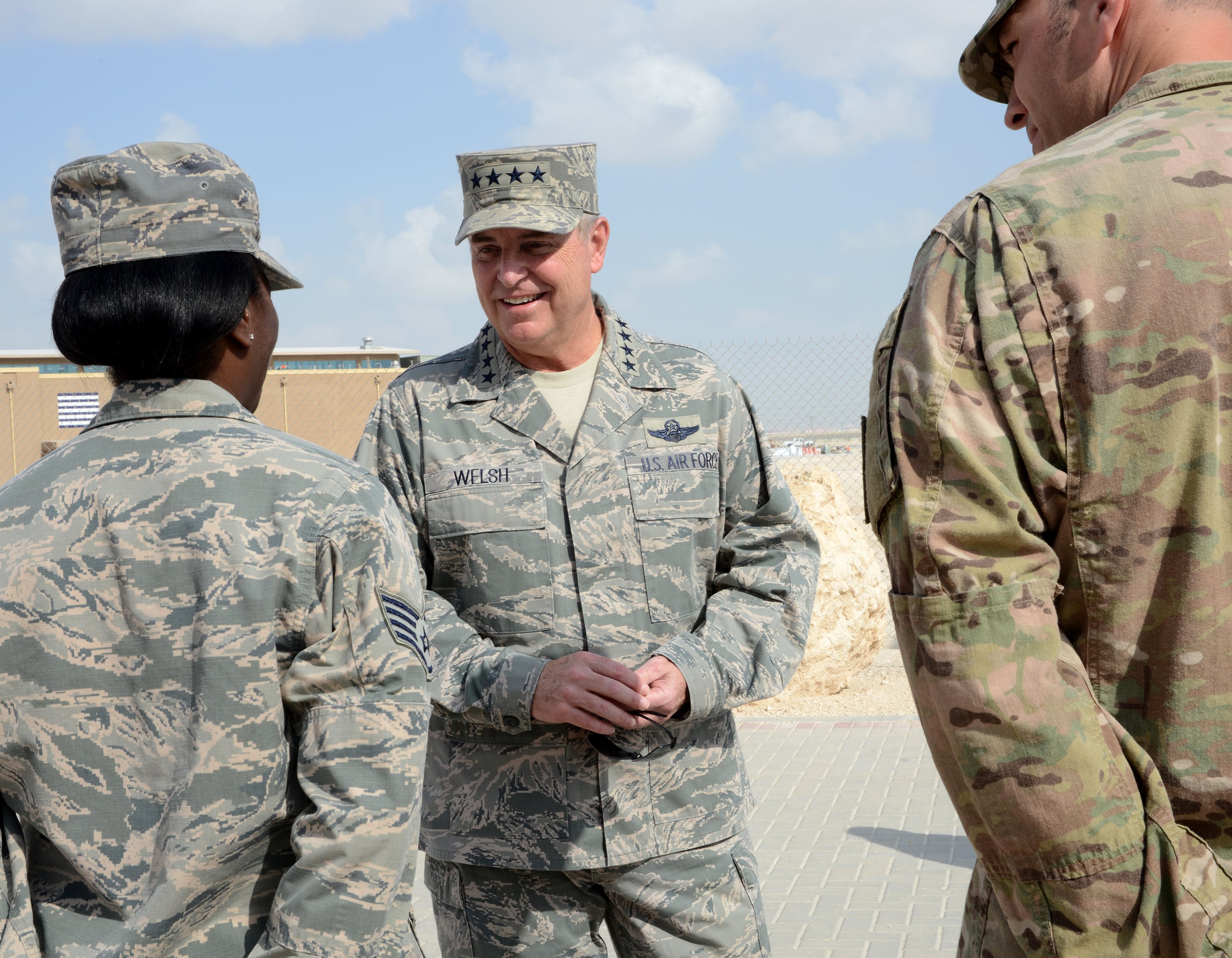Astute observers have noticed that Chief of Staff Gen. Mark Welsh has been wearing a blocked patrol cap, such as when he shook hands with airmen during his December visit to Al Udeid Air Base in Qatar.
Chief Master Sergeant of the Air Force James Cody has also been spotted wearing a blocked cap, which has stiff sides to maintain its shape.
With multiple sightings of Welsh and Cody wearing the sharp and crisp caps, some airmen have started to wonder what this means for them. The military blog John Q. Public raised the issue of whether all airmen might end up wearing blocked caps.
Wonder no more: It ain't happening.
"The blocked cap is not a new uniform item and not required or even suggested, nor are there discussions to make it a requirement," Welsh's spokesman Lt. Col. Allen Herritage explained. "Gen. Welsh just likes the way it looks, but it's not for everyone."
Blocked caps would be impractical for the entire Air Force because when airmen aren't wearing their patrol caps, they often put them in the cargo pocket of their Airman Battle Uniform trousers, Herritage said in an email Tuesday to Air Force Times.

Chief of Staff Gen. Mark Welsh speaks with airmen during a Dec. 14, 2014, visit at Al Udeid Air Base, Qatar.
Photo Credit: Senior Airman Kia Atkins/Air Force
"I've traveled multiple times with CSAF [chief of staff of the Air Force] in the Airman Battle Uniform and it's never been asked, suggested or implied that I should wear my hat similarly" Herritage said. "The same goes for his aide de camp who always accompanies CSAF."
Cody also likes the look of a blocked cap, his spokesman Senior Master Sgt. Lee Hoover said.
"The overwhelming majority of airmen he meets do not have a blocked cap, and he's never once said or implied that they should," Hoover said in an email. "The topic has never come up. It's simply how he prefers to wear his cap."
The Army once required soldiers to wear blocked caps. Adopted in 1953, the "Ridgeway Cap" was named after then Army Chief of Staff Gen. Matthew B. Ridgway, who had commanded U.S. troops during the Korean War and then replaced Gen. Dwight D. Eisenhower as supreme allied commander of Europe.





